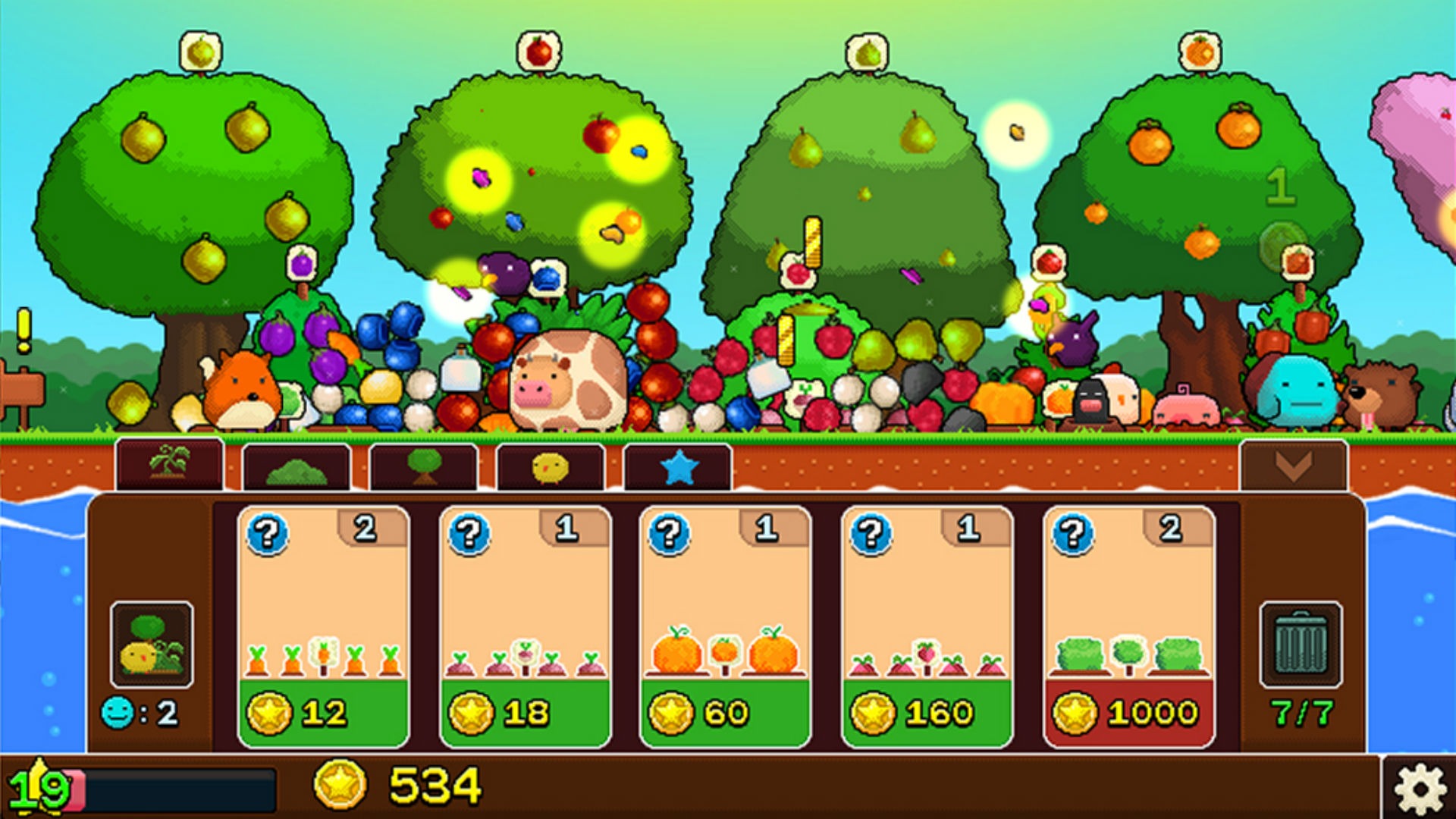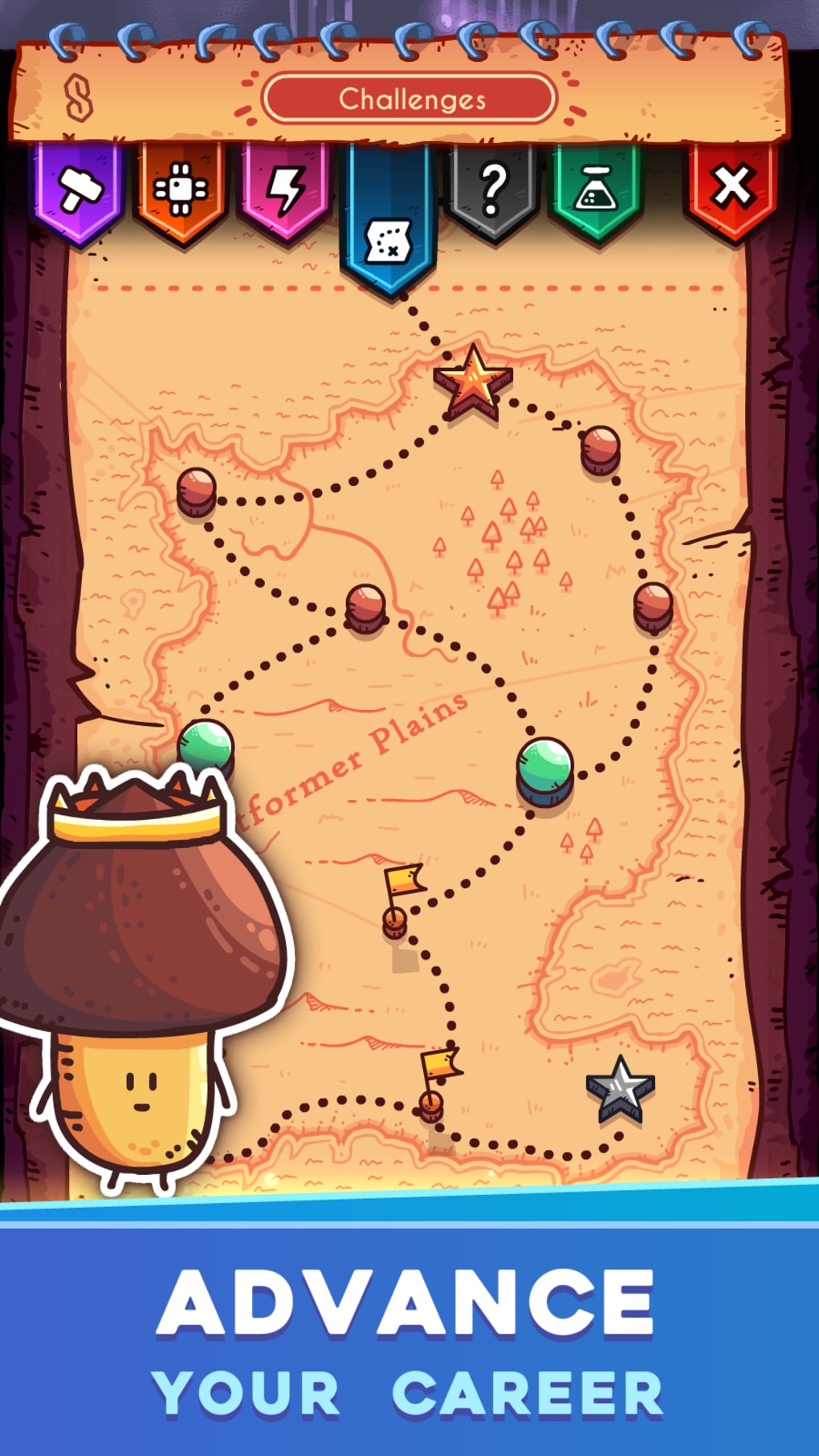
Beyond the Button: Unearthing the Strategic Depths of Instant Play Idle Clicker Games with Deep Skill Trees
In the vast, ever-expanding digital cosmos of gaming, there exist genres that defy conventional expectations, often dismissed by the uninitiated as simplistic or even mindless. Among these are idle clicker games, those deceptively calm experiences where progress unfolds with minimal direct interaction, often while you’re busy with life’s myriad other demands. They are the digital zen gardens, the background hum of progress that offers a steady drip-feed of dopamine. But beneath this tranquil, often browser-based surface, lies a surprising world of intricate design, particularly in those titles that boast not just endless numbers, but truly deep skill trees.
Forget the notion that idle games are merely about clicking a button repeatedly until your finger aches or watching bars fill passively. While that might be the initial facade, the modern evolution of this genre, especially those accessible instantly via a web browser, has woven in layers of strategic depth that rival some of the most complex RPGs. The true genius lies in their ability to marry the immediate gratification of "instant play" with the profound long-term planning demanded by a truly sprawling skill tree. This isn’t just about bumping up your damage stat; it’s about crafting a dynasty, optimizing an economy, and charting a course through a labyrinth of interconnected upgrades that can genuinely twist your brain into delightful knots.
The Allure of Instant Gratification Meets Persistent Progression
Let’s start with the "instant play" aspect. In an age dominated by massive game downloads, extensive updates, and platform-specific requirements, the browser-based idle clicker offers a refreshing antidote. No installations, no hefty system requirements, often not even a login needed for a quick dip. You open a tab, and boom – you’re in the game. This accessibility is a crucial gateway, luring in players who might otherwise never touch a "proper" video game. It’s perfect for coffee breaks, procrastination sessions, or simply having something engaging yet non-demanding running in the background.
This low barrier to entry, however, belies the commitment many of these games subtly demand. What begins as a casual click soon evolves into a daily check-in, then an hourly tweak, and before you know it, you’re consulting wikis and spreadsheets, optimizing your "build" for the next prestige reset. The beauty is that this transition is entirely organic. The game doesn’t demand your soul upfront; it seduces you with small, consistent rewards, slowly revealing its hidden depths.
The "idle" part is often misunderstood. It doesn’t mean you are idle; it means the game progresses even when you are. Your digital empire continues to generate resources, your heroes continue to battle, your numbers continue to grow. Your role shifts from active execution to strategic management and optimization. You’re less of a hands-on general and more of a grand strategist, designing the systems that will win the war while you’re away.
The Skill Tree: Where the Brainpower Lives
Now, for the main event: the skill tree. In many simpler idle games, progression is linear: more money buys bigger numbers. While satisfying in its own right, it lacks the cerebral chewiness that truly hooks a segment of the gaming population. Enter the deep skill tree, a concept borrowed heavily from role-playing games, but reimagined for the incremental genre.
What constitutes a "deep" skill tree in this context? It’s far more than just a grid of passive bonuses. A truly deep skill tree in an idle clicker offers:
- Branching Paths and Specializations: Instead of one optimal route, players are presented with genuine choices. Do you focus on raw clicking power, passive income, defensive capabilities, or a synergistic mix? These choices often lead down entirely different branches, unlocking unique abilities, new resource types, or even entirely new game mechanics.
- Synergy and Interconnectedness: The best skill trees aren’t just a collection of independent upgrades. They thrive on synergy. One skill might boost the effectiveness of another, or unlock a bonus that relies on a specific build. Discovering these hidden combinations, where 1+1 equals 3 (or 10, or 100), is where much of the strategic satisfaction lies.
- Active vs. Passive Abilities: Beyond simple stat bumps, deep skill trees often include active abilities that require player input (like temporary buffs or powerful spells) and passive ones that continuously influence gameplay. Deciding which to prioritize, and how to weave active play into your idle strategy, adds another layer of tactical decision-making.
- Meta-Progression and Prestige: Many idle games feature a "prestige" or "ascension" mechanic, allowing players to reset their progress (often with the exception of certain permanent upgrades) to gain a new, more powerful currency or bonus. This mechanic breathes new life into the skill tree, as players can then re-specialize, experiment with entirely new builds, and tackle challenges they couldn’t before. The skill tree isn’t just about one playthrough; it’s about optimizing across many playthroughs.
- Unlocking New Game Mechanics: Sometimes, a specific skill or an entire branch of the skill tree won’t just make numbers bigger; it will unlock an entirely new system within the game. This could be a new resource to manage, a new type of enemy to fight, a new minigame, or even a new faction to align with. These unlockables fundamentally change how you play, adding layers of complexity and keeping the experience fresh for hundreds of hours.
The Joy of Theorycrafting and Optimization
For the analytical mind, a deep idle skill tree is a playground. Players aren’t just mindlessly clicking; they’re theorycrafting. They’re asking questions like:
- "If I invest heavily in this early-game resource generation, how quickly can I unlock the next tier of research that boosts my late-game prestige gains?"
- "Does this specific combination of two seemingly unrelated passive skills create an exponential growth curve that outweighs a more direct damage boost?"
- "Should I save my skill points for a powerful, expensive ultimate ability, or spread them out for consistent, smaller gains?"
- "Which faction’s unique skill tree synergizes best with my current meta-progression?"
This level of strategic planning can be incredibly engaging. Players often find themselves poring over wikis, joining Discord communities, and even creating their own spreadsheets to map out optimal paths. The satisfaction comes not just from seeing numbers grow, but from knowing that your carefully considered choices, your unique build, and your strategic foresight are what propelled that growth. It transforms a simple clicking game into a complex puzzle-solving experience.
Illustrative Examples: Where the Trees Grow Deep
To truly appreciate this phenomenon, one needs to look at games that exemplify it.
- Realm Grinder: This title is a veritable masterclass in skill tree design and faction-based progression. Players align with various fantasy races (Humans, Elves, Goblins, etc.), each offering unique upgrades, spells, and, crucially, distinct research trees. These trees are not just a few linear upgrades; they are sprawling networks of hundreds of interconnected nodes. Choosing a faction and then navigating its specific research paths, often combining elements from "good" or "evil" alignments, creates an astounding number of viable builds and strategies. The depth here is legendary, with players still discovering new optimal paths years after its release.
- Trimps: Often cited as one of the most complex idle games, Trimps is a text-heavy, resource-management heavy beast. Its "Perk" system acts as a highly impactful, meta-progression skill tree. Each reset allows you to allocate "Helium" (the prestige currency) into various perks that offer significant, permanent boosts to production, combat, and resource gathering. The choices here are critical, as they dictate your ability to push deeper into the game’s increasingly challenging zones. Furthermore, the game introduces "masteries" and other layers that add even more depth to its strategic planning.
- Antimatter Dimensions: This game takes the abstract nature of idle games to an extreme, but its underlying progression, particularly through its "Eternity" and "Reality" upgrades, forms an incredibly deep and intricate skill tree. Players must make complex decisions about how to allocate resources to unlock new dimensions of power, each with its own set of multipliers and challenges. It’s a game that demands serious long-term planning and a willingness to understand deeply interconnected systems.
- Idle Skilling / Idle Slayer: While primarily mobile, these games often have browser versions or are representative of the genre’s evolution. They feature expansive skill trees for various combat styles, resource generation, and utility. The sheer number of skills, combined with equipment synergies and "talent" systems, forces players to carefully consider their builds for different types of content (boss fights, farming, etc.), creating a rich strategic environment.
The Psychology of the Infinite Grind, Optimized
Why do we find this so compelling? Part of it is the inherent human desire for progress and mastery. Idle games, particularly those with deep skill trees, provide an endless canvas for this. Every choice feels meaningful, every number increase is a validation of your strategic prowess, and every unlocked branch is a new frontier. It’s a low-stress way to engage the problem-solving parts of our brain, offering a sense of accomplishment without the high-stakes pressure of competitive gaming.
Moreover, the "instant play" nature means that these moments of strategic insight and optimization can happen anywhere, anytime. You might be commuting, waiting in line, or simply taking a break, and suddenly, a new build idea clicks into place. This constant, accessible engagement keeps the mental wheels turning, turning the mundane into an opportunity for subtle intellectual stimulation.
The Future is Deep and Instant
The genre of instant play idle clickers with deep skill trees is far from stagnant. Developers are constantly experimenting with new mechanics, blending in elements from roguelikes, tower defense, and even narrative-driven games. The challenge is always to maintain that delicate balance: easy to pick up, impossible to master. To offer enough visible progress to keep casual players engaged, while simultaneously hiding layers of complex decision-making for the dedicated optimizers.
As technology advances and browser capabilities grow, we can expect these games to become even more visually engaging and mechanically intricate, without sacrificing their fundamental accessibility. The "instant play" aspect will remain a core draw, inviting curious minds to click that initial button. But it’s the sprawling, intelligent design of their skill trees that will continue to captivate, challenge, and reward those who dare to look beyond the simple click and delve into the surprising strategic depths below. So next time you see a seemingly unassuming browser tab with numbers ticking up, don’t dismiss it too quickly. You might just be looking at your next grand strategic obsession.
